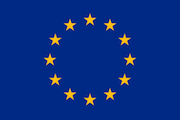 The CoR’s position embraces the EMB’s Market Responsibility Programme. Two weeks after the quota system for Europe’s dairy farmers ended, the Committee of the Regions (CoR) rings the alarm bells. In the opinion on the milk market adopted on 16 April, the members of the EU committee warn of a problematical future for the EU dairy sector.
The CoR’s position embraces the EMB’s Market Responsibility Programme. Two weeks after the quota system for Europe’s dairy farmers ended, the Committee of the Regions (CoR) rings the alarm bells. In the opinion on the milk market adopted on 16 April, the members of the EU committee warn of a problematical future for the EU dairy sector.
Report CoR
Moreover, its representatives regard the Market Responsibility Programme developed by the European Milk Board (EMB) as a flexible, cost-effective concept to counter market disruptions. In its opinion, which takes a critical view of the EU milk policy, the members of the CoR home in on concrete current developments. They warn, for instance, that at present the EU has “no effective instruments” for curbing fluctuations in prices paid to milk producers or ensuring protection in the event of a milk price collapse.
Concerns of EMB
Romuald Schaber, President of the European Milk Board, welcomed the own initiative
report: “The Committee of the Regions’ backing is a key signal for us. This year already the dairy farmers in the EU face a fall in prices that threatens the survival of many of them. It is unacceptable that the EU Commission will stand by and do nothing until 2018 as milk production dies out. With the backing of the CoR we will continue to pressurise for the implementation of the Market Responsibility Programme we developed.”
Responsibility Programme
The Brussels representatives of the regions view the Market Responsibility Programme presented by the EMB as a “flexible, concrete and cost-effective instrument that should now be scrutinised by the appropriate institutions for its implementability. The aim of the programme is to stabilise the milk market in times of crisis. Back in 2013, the EU
Parliament had called for a support mechanism for dairy farmers who voluntarily cut their production in the event of a crisis. The Committee of the Regions is now putting the spotlight on the demand rejected by the Ministers of Agriculture in the course of the CAP reform.
World market?
Tying the EU milk price to the world market level is severely criticised.
The CoR regards the close linking of the EU farm-gate price for milk to the world market price as unacceptable. According to its position paper, the EU should take as a blueprint models in which the price indexing is geared to actual production costs and not to the world market price. The example of Canada showed that in this way “a clearly more stable and higher milk price can be guaranteed than in Europe”.
The opinion points out further weaknesses of the EU milk policy in connection with the “Milk Package”. Its effectiveness is severely restricted, for instance, because the co-operatives, who market more than 60 per cent of milk in Europe, “have become detached from the contractual obligation and production control.”
Market Observatory
In the recently established European Milk Market Observatory the CoR sees greater scope for improvement. The CoR urges its development “into a real instrument for controlling and not just for monitoring retrospectively”. The CoR report further criticises the greater orientation of the European milk policy to exports to developing countries. After the abolition of protective tariffs, this would undermine the development of fairy farming and smaller dairies in West Africa in particular.
The EMB calls upon the European Commission to take on its responsibility and find adequate answers to the Committee of the Regions’ demands. We will be sending out a detailed analysis of the CoR’s opinion, focusing on the key points, in the near future.
Thanks to Hanna Penzer of EMB in Brussels.

